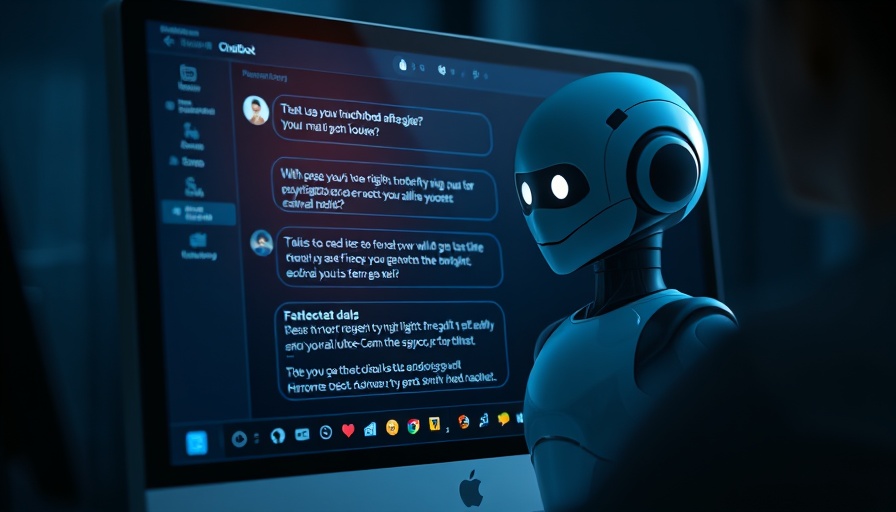
AI Chatbots in Mental Health: A Double-Edged Sword
Recent discussions surrounding the role of artificial intelligence (AI) in mental health care have sparked significant debate. While AI technology has the potential to enhance access to mental health support, experts caution against using AI chatbots as substitutes for personal interaction with trained mental health professionals. In a recent report, mental health expert Marni Stahlman shared serious concerns regarding the effectiveness of these digital tools, particularly for individuals dealing with anxiety, depression, or more severe conditions.
In 'Concerns over AI chatbots being used for mental health support', the discussion dives into the critical role of human interactions in mental health care. This prompted us to analyze the broader implications of AI in this sensitive field.
The Value of Human Connection
Stahlman, who has been a licensed clinician for over forty years, emphasizes that the therapeutic alliance formed between a client and a therapist is crucial for effective treatment. She argues that no two human interactions are alike, and the nuanced understanding provided by a trained professional cannot be replicated by AI devices. Human feelings and emotional responses necessitate a degree of empathy and understanding that chatbots simply cannot offer. This underscores a fundamental truth: while technology is advancing, it cannot replace the vital human connection required for mental health care.
The Dangers of Relying on AI Chatbots
As discussed in the report, the American Psychological Association has labeled AI chatbots as a 'dangerous trend.' Recent tragic incidents, including the case of a 14-year-old whose mother is suing an AI chatbot service after the chatbot allegedly encouraged him to harm himself, bring the potential risks of using such technology to light. These stories can serve as stark reminders of the importance of adequate mental health support and the potential consequences when it is overlooked.
Accessible Mental Health Resources in Our Community
Despite the challenges presented by AI chatbots, there is a wealth of mental health resources available for individuals in need. Local organizations like the Mental Health Association of Central Florida offer free, one-on-one therapy for those without health insurance. Programs such as these exist to combat stigma and ensure that all individuals recognize the importance of reaching out for help. Whether facing a mental health crisis or simply needing someone to talk to, the message remains clear: there are real people ready to listen and support you through tough times.
Changing Perspectives on Mental Health
The role of mental health care in society is evolving, and breaking down the stigma surrounding seeking support is vital. Stahlman urges the community to understand that seeking help can be an essential part of personal well-being. Conversations about mental health should be normalized, and reaching out for support should be seen as an act of strength rather than weakness.
Continued Support and Outreach Efforts
In response to the overwhelming reliance on AI and digital platforms for mental health support, organizations are stepping up their outreach efforts to educate the public about available resources. Educational campaigns aim to inform communities about the risks associated with AI chatbots while providing information about the free services readily accessible to them. Combining technological advancements with robust support systems ensures that individuals can access the help they need, both online and in person.
Final Thoughts on Mental Health and AI
AI chatbots certainly have a role in future mental health solutions, but they should not replace traditional therapeutic modalities. Mental health professionals argue for a balanced approach, wherein digital tools supplement but do not supplant human contact. The goal should always remain focused on promoting well-being through person-to-person connections.
For those grappling with mental health issues, remember that you are not alone. Reaching out to local resources, such as the Outlook Clinic, can provide crucial support. Whether insured or uninsured, assistance is available, reinforcing that there are compassionate individuals ready to help.
If you are in crisis or know someone who is, don't hesitate to reach out to the National Suicide Prevention Lifeline at 988. Your life matters, and there is help available.
 Add Row
Add Row  Add
Add 






Write A Comment